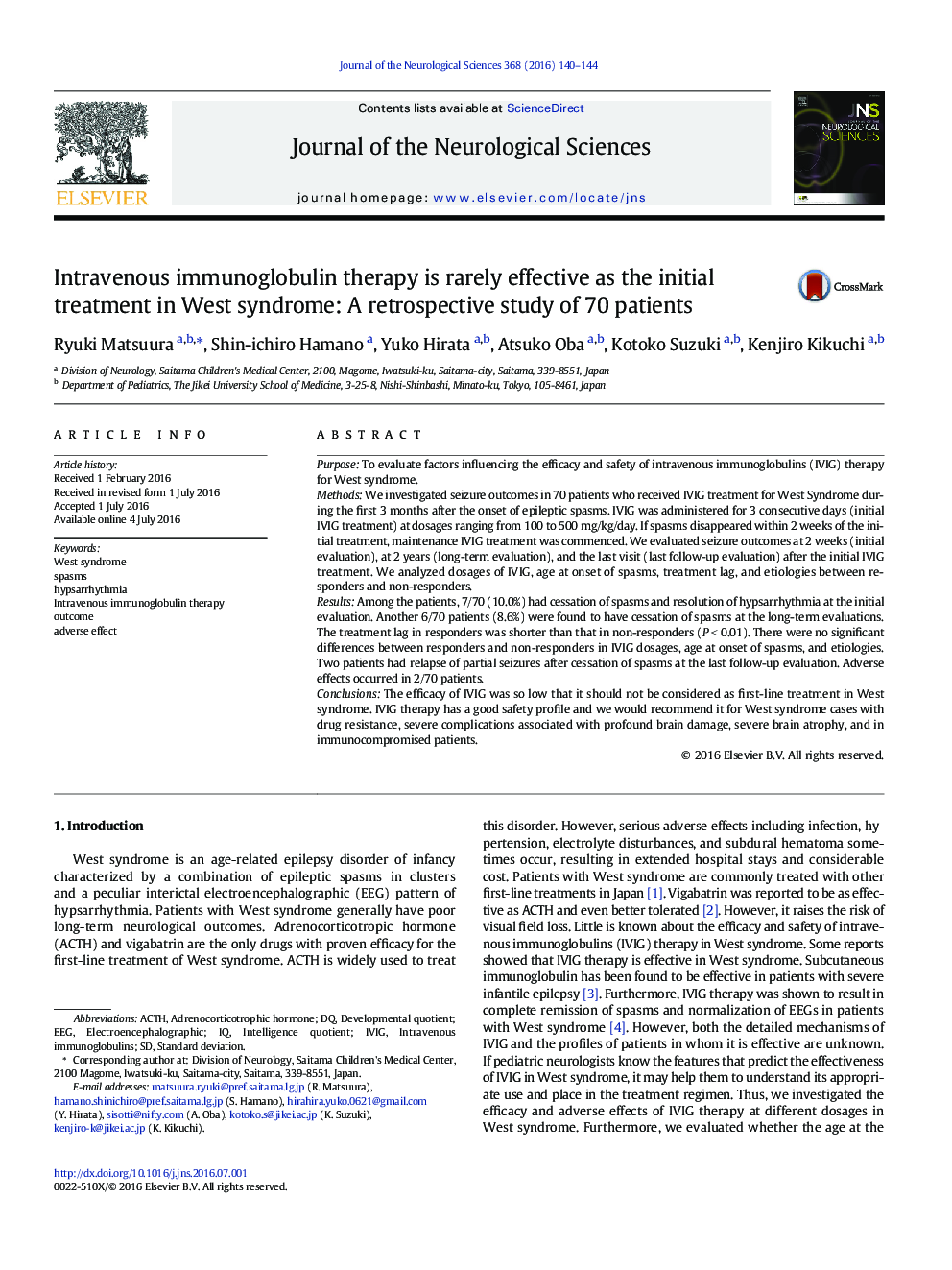| Article ID | Journal | Published Year | Pages | File Type |
|---|---|---|---|---|
| 1912966 | Journal of the Neurological Sciences | 2016 | 5 Pages |
•This is the first study of Intravenous immunoglobulins (IVIG) therapy on a large number of patients with West syndrome.•IVIG therapy is rarely effective as the initial treatment in West syndrome.•The efficacy of IVIG therapy in our study was lower than that in previous studies.•IVIG therapy has a good safety profile and we would recommend it for West syndrome cases with drug resistance, severe complications associated with profound brain damage, severe brain atrophy, and in immunocompromised patients.•Patients with short treatment lag showed better seizure outcomes in IVIG therapy.
PurposeTo evaluate factors influencing the efficacy and safety of intravenous immunoglobulins (IVIG) therapy for West syndrome.MethodsWe investigated seizure outcomes in 70 patients who received IVIG treatment for West Syndrome during the first 3 months after the onset of epileptic spasms. IVIG was administered for 3 consecutive days (initial IVIG treatment) at dosages ranging from 100 to 500 mg/kg/day. If spasms disappeared within 2 weeks of the initial treatment, maintenance IVIG treatment was commenced. We evaluated seizure outcomes at 2 weeks (initial evaluation), at 2 years (long-term evaluation), and the last visit (last follow-up evaluation) after the initial IVIG treatment. We analyzed dosages of IVIG, age at onset of spasms, treatment lag, and etiologies between responders and non-responders.ResultsAmong the patients, 7/70 (10.0%) had cessation of spasms and resolution of hypsarrhythmia at the initial evaluation. Another 6/70 patients (8.6%) were found to have cessation of spasms at the long-term evaluations. The treatment lag in responders was shorter than that in non-responders (P < 0.01). There were no significant differences between responders and non-responders in IVIG dosages, age at onset of spasms, and etiologies. Two patients had relapse of partial seizures after cessation of spasms at the last follow-up evaluation. Adverse effects occurred in 2/70 patients.ConclusionsThe efficacy of IVIG was so low that it should not be considered as first-line treatment in West syndrome. IVIG therapy has a good safety profile and we would recommend it for West syndrome cases with drug resistance, severe complications associated with profound brain damage, severe brain atrophy, and in immunocompromised patients.
